Deadly Dog Flu Spreads
Aug. 18, 2009 — Canine influenza, the potentially deadly H3N8 virus commonly known as dog flu, is spreading.
as dog flu, is spreading.
So far the virus has led to the death of one dog last week, closed down the kennel at Virginia’s Fairfax County Animal Shelter, and, according to experts, is now affecting dogs in at least four other states: Colorado, New York, New Jersey, and Pennsylvania.
While the reason for the shelter outbreak, which killed a 15-year-old whippet owned by a clinical technician and sickened 26 dogs, remains unknown, it’s possible that one or more infected dogs from Philadelphia or D.C. introduced the illness to Virginia.
“Dogs often move in and out of shelter systems over long distances, such as via breed and rescue groups,” Edward Dubovi, director of the virology center at Cornell’s Animal Health Diagnostic Laboratory, told Discovery News.
“Boarding kennels and even elite doggie day care centers can also result in cases, since, as for kennel cough spread, the virus is highly contagious and dogs may catch it from one another,” added Dubovi.
He first isolated the canine influenza virus in 2004, after University of Florida researchers sent him fluid and tissue samples from greyhound race dogs that had died from a then mysterious respiratory illness at a Florida racetrack.
Dubovi and his team determined the cause was the H3N8 equine flu virus, which jumped from horses to dogs. In addition to spreading from dog to dog, canines can also catch it from humans, who may have come into contact with infected animals.
The illness has not yet sickened any people.
Posted: Just One More Pet
Hurricane Season’s Here: Six Steps to A Rescue Plan that Includes Pets
 Katrina, Ike and Gustav are more than just names to those whose homes and families were devastated by these destructive storms. Even with the aid of disaster response teams, many evacuees permanently lost their companion animals. As hurricane season 2009 heats up, the message couldn’t be clearer—you can help prevent losing your pet by putting emergency evacuation plans into place.
Katrina, Ike and Gustav are more than just names to those whose homes and families were devastated by these destructive storms. Even with the aid of disaster response teams, many evacuees permanently lost their companion animals. As hurricane season 2009 heats up, the message couldn’t be clearer—you can help prevent losing your pet by putting emergency evacuation plans into place.
The ASPCA would like to offer a sneak peak at six steps to follow BEFORE you’re faced with evacuation. To read our complete list in English and Spanish, visit the Disaster Preparedness section of our website.
- Get a Rescue Alert Sticker
Affix these decals, free on the ASPCA website, to the windows of your home to alert rescue officials that a pet lives inside. - Arrange a Safe Haven
Don’t leave your pet behind if you’re forced to evacuate. Find out if there are emergency animal shelters in your area. If not, take these steps to keep your pet safe. - Pre-Pack Emergency Supplies and Traveling Kits
Prepare an Evac-Pack and pet supplies before emergency strikes, and make sure that everyone in the family knows where they are. The kit should be clearly labeled, easy to carry and should include items such as a pet first aid kit, recent photos of your animal companion and food and water bowls. Read a more complete list of items to include. - Choose A Designated Caregiver
Take time to consider who you’d like to act as your pet’s temporary caregiver should you not make it home in time to retrieve your pet. Ask yourself these questions: is the person home often enough to care for your pet, do they have a key to your residence and have they spent time getting to know your animal companion? - Have an Evacuation Plan in Place
Plan for the worst-case scenario. Store an emergency kit and leashes as close to an exit as possible, make sure all of your pets are wearing proper identification and consider your evacuation route ahead of time. - Know Your Region’s Weather Patterns
If you live in an area that is prone to natural catastrophes, such as tornadoes, earthquakes or floods, know which rooms in your house can be used as safe havens, store up a supply of fresh water in advance and, in the event of an emergency, keep your pets with you, even crating them for safety and comfort.
Visit the Disaster Preparedness section of our website for a more complete list of emergency planning tips and to download the Ready Pets brochure on pet-friendly evacuation (pdf).
Do you Twitter? Use this hashtag to tweet on this article: @aspca and #DisasterPlans
Posted: Just One More Pet
Couple’s Chihuahua Pitched Into the Catoctin Creek
Man admits to throwing dog, charged with animal cruelty

Caisha and Tim Wantz
BRUNSWICK, Md. — Maryland State Police charged a man with throwing a Frederick County family’s Chihuahua off a bridge.
Caisha and Tim Wantz encountered a man with a station wagon and talking on a cell phone at the end of their driveway in Point of Rocks on June 19 as they were driving to get gas in preparation for their big weekend plans. They argued with him after asking him to leave. He told them he wanted to stay and make a call, the couple told NBC4’s Pat Collins.
“I told him I was going to call police,” Caisha Wantz said. “He laughed at me.”
She said he mocked her and started driving toward her like he was going to run her over.
Dog Thrown off Bridge in Frederick
“I yelled out to him, ‘Go ahead, you. Run over me in front of my family,'” Caisha Wantz said.
She was holding thermos of coffee and she decorated his rear window with the beverage.
Charging documents state that 34-year-old David Beers left but came back after the couple left and drove up to their house. Beers told police that he grabbed the 4-pound, 1-and-a-half-year-old dog named Zoey when she walked up to his car.
As Beers drove home over Catoctin Creek Bridge, he threw the dog over the bridge, police said. He later admitted to throwing the dog, which was never found.
“I have made, a few months ago, the worst decision of my life, and I want everyone to know that I deeply regret the pain and suffering that I caused the Wantz family,” Beers told Collins. “I have dealt with this stuff very heavily, and it’s affected my family and friends, and to them I own an apology as well.”
“She was my companion,” Caisha Wantz said. “She was our family companion. She went on vacation with us; she would travel to the store with us. I often had her in my purse.”
Beers has been charged with theft less than $500, trespassing and animal cruelty. He told Collins that he is undergoing anger management and seeing a psychiatrist.
A Sept. 17 court date has been set.
Copyright Associated Press / NBC Washington – First Published: Aug 28, 2009 7:20 PM EDT
I really think it is time to start charging these people with what it is… murder, or at least man(pet)slaughter as well as will emotional distress for the pet parents, which should include any medical bills! Theft, trespassing and animal cruelty should be add-on charges. Throw the book at this guy and all the other nuts who these kinds of things.
Because they are uncaring crazies or animal haters at best and sociopaths and/or both domestic and animal abusers at the other end of the scale, and we are not making examples of them, they are willing to do these things without a second thought.
Posted: Just One More Pet
Related Posts:
- Elderly Chihuahua Rescued From Trash & Cat Found in Duffle Bag
- Is Your Pet a Voiceless Victim of the Tanking Economy?
- Demand Justice for Dog Tortured and Killed by Owner – Petition
- Military Punishment for Dog Killer, Abuser a Joke! No Justice! VIDEO
- Charges in Dog Beating Upgraded to Felony
- Dog Dead After Neighbor Beats it for Barking – VIDEO
- Two Teens Torture, Kill Family Dog – VIDEO
- Man “Regularly Beat Dog with Shovel Handle”
- Community Service for Dog Killer
- Teen Who Killed Kitten Only to Serve One Year in Prison
- Humane Society of the U.S. finally changes its policy on fighting dogs
- Teen Kills Kitten in Oven; Faces 10-Year Sentence
- Is Your Pet a Voiceless Victim of the Tanking Economy?
- Where there is a will…
- Warning Signs That Your Child’s Behavior Is Dangerous To Pets
- Jesse Compares Michael Vick to Jackie Robinson
- Not Everyone Wants Michael Vick to Come Back
- Brooklyn Woman Assaults Two ASPCA Agents
- Speak Out For Those Who Cannot Speak For Themselves… Always Stand-up for Them and Join the ASPCA
- Don’t Think for a Minute that Dogs (or any pet) Can Survive in a Hot Car
- Joan of Ark – Joanie’s Story
- Help Feed Hungry Pets
- Father Arrested for Allegedly Killing Family Dog in Front of Children
- Domestic and Animal Abuse
- Glenn Beck – Teen punks murder American Hero’s Dog
- Alabama Dog Fighting Bust
- Ohio Woman 75, Accused of Beating Fawn to Death
- 18-year-old Charged in Florida Cat Mutilations
- And the Verdict is… GUILTY!! YES!!!
- Brooklyn Man Arrested for Neglecting Aging Pet
Poop Eater – Do You Have This Problem?
(Discussion taken from my AARP Blog Pet Group)
Can anyone help? My adorable 2 year old, 11 lb Havamalt has a bad habit. She is pee-pee pad trained and if I am not around to pickup when she poops, she cleans up herself! I have tried everything from changing her food to using the special powder in her food, the pills sold for this problem and nothing works. I would appreciate any suggestions.
———–
Responses Back:
1. Hi – I have a 14+ year old border terrier, Maggie, who I adopted when she was 12. One of her bad habits was eating her poop. I learned to clean up after her like a shot – and eventually good nutrition virtually solved the problem, together with cleaning up after her.
Like some of you said, I loved her anyway. One solution I have read about is that pineapple makes the feces taste bad to a dog (fed to the dog). Anyone have experience with this or the pills available for this problem? The individual writing in has a particular problem since defecation is allowed inside the house (not something I have ever done).
2.  Yes, a frustrating habit and you have the best advice from other posters. One
Yes, a frustrating habit and you have the best advice from other posters. One  thing that I heard on television with Victoria Stillwell. Feed pineapple with the dogs food. Then of course pick up ASAP. Her claim was the dogs hate the smell in the stool and will not eat it. Good luck, Judith and Maddie.
thing that I heard on television with Victoria Stillwell. Feed pineapple with the dogs food. Then of course pick up ASAP. Her claim was the dogs hate the smell in the stool and will not eat it. Good luck, Judith and Maddie.
3. I appreciate your response. Since my dog is pee pee pad trained I cannot let her sleep at night anywhere but her crate because of this habit. I also pick-up immediately when she goes outside but sometimes I think she deliberately does not go so she can practice her bad habit in the house when I am not looking. She is fast and good at it. I love her anyway!!!
4. My 4-year-old Lab does the same thing, and I have tried the powder and  everything else… The fact is this… Dogs can smell every ingredient in anything…. that is if you have a pot of soup on the stove they can distinguish each ingredient in the soup by smell….sometimes all of their food does not digest, and they smell it in their feces, and yes will eat it if .. my vet told me this, and some eat it out of boredom.. and it is a very bad habit.. it is up to you to pick it up ASAP to keep him from eating it… It does not harm the Dog , its just disgusting more than anything… as soon as my Dog is done going, I am out there with a shovel…not a good place to be in the winter time
everything else… The fact is this… Dogs can smell every ingredient in anything…. that is if you have a pot of soup on the stove they can distinguish each ingredient in the soup by smell….sometimes all of their food does not digest, and they smell it in their feces, and yes will eat it if .. my vet told me this, and some eat it out of boredom.. and it is a very bad habit.. it is up to you to pick it up ASAP to keep him from eating it… It does not harm the Dog , its just disgusting more than anything… as soon as my Dog is done going, I am out there with a shovel…not a good place to be in the winter time
5. Although none of our 4 dogs (Chihuahuas and Chiweenies) do it now, I was amazed when our Chihuahua had puppies at the efficiency and thoroughness with which she cleaned up after her birth mess, the puppies themselves and then after the puppies eliminations. It is obviously a natural instinct.
Even though we live in the city, we live in an area backed up to a large open wilderness area where there are lots of wild animals: bunnies, squirrels, raccoons, possums, birds of all types, an occasional snake, lizards and coyotes. I understand that before we lived here there was even a wolf citing. And if we are not diligent all four of our pups will try and to eat the bunny droppings; obviously an attraction there…
Stool Eating (Coprophagy)
Q.
What are the causes and cures of stool eating?
A.
Coprophagy (pronounced kä – präf’ – je) comes from the Greek copro which means feces and phagy which means eat. And that is what it is – eating feces. A habit of dogs we all find disgusting, but as we say, dogs will be dogs. Some dogs especially like feces fromherbivores like rabbits, deer, and horses. Others love to raid the cat’s litter box. Still others only eat dog feces if it is frozen.
Why do dogs eat feces?
A lot of theories have been suggested as to why dogs eat feces. Are they missing something in their diet? Generally not.
Dogs who eat their feces usually do not have a dietary deficiency. Some medical problems, however, can contribute to coprophagy including severe disorders of the pancreas (pancreatic insufficiency) or intestine, severe malnutrition from massive parasiticinfestations, or starvation. These cases are rare.
Some dogs, especially those in kennel situations, may eat feces because they are anxious or stressed. One researcher suggests that dogs who have been punished by their owners for defecating inappropriately start to think any defecation is wrong, so they try to eliminate the evidence.
Another theory is that coprophagy is a trait passed down through the ages. Dogs’ cousins, the wolves and coyotes, may often eat feces if food is in short supply. Feces from herbivores (animals that eat plants for food) contain many of the B vitamins. Some researchers suggest that wolves (and some dogs) may eat feces to replenish their vitamin supply.
In some instances, coprophagy may be a behavior learned from watching other animals. It may also become a habit in the course of play and puppies having to try out the taste of everything.
There is a stage of life in which coprophagy is common and expected. Can you think of what it is? Bitches and queens normally eat the feces of their offspring. This is presumed to occur in an attempt to hide the presence of the litter from predators.
Finally, some dogs may eat feces just because it tastes good (to them).
How do we prevent coprophagia from occurring?
The best way to prevent the problem is to keep yards and kennels free of feces.
Some owners find it successful to use something to make the feces taste horrible. Products such as For-bid (for cats or dogs) and Drs. Foster and Smith Dis-Taste (for dogs) are added to the food of the animal whose feces are being eaten (it could be the food of the dog with coprophagy if he eats his own stool; or the food of the cat, if the dog with coprophagy eats the cat’s feces). The product is digested by the animal, and results in giving the feces a very bad taste. Some people try putting Tabasco sauce or cayenne pepper (chili powder) on the feces (not the food!). Unfortunately, some dogs have acquired quite a taste for Tabasco. These methods work best if the behavior has just started. Once coprophagy has become a habit, it is very difficult to break.
Dogs should be on a leash when walking, so you have control over the dog in case a luscious pile of feces is found along the way. Sometimes, the only way to prevent coprophagy is to fit the dog with a wire muzzle. The dog will be able to sniff, pant, and do most things dogs do, but the dog will not be able to eat with the muzzle on. DO NOT LEAVE A MUZZLED DOG UNATTENDED.
Adding toys and other diversions to the environment may be helpful. We need to find something that is more fun for the dog than eating feces. A dog may find a Kong toy laced with peanut butter a better alternative. Also give the dog lots of exercise to help it ultimately relax.
In situations in which the behavior may be linked to stress, the cause of stress should be eliminated or at least reduced. In some instances of extreme anxiety, or if the behavior becomes obsessive-compulsive, medication may be necessary to try to break the cycle.
One researcher recommends checking the dog’s diet to make sure he is getting enough B vitamins and is not getting an excess of carbohydrates.
Some dogs will improve if they are fed more often, so you may want to increase the number of meals (but keep the total daily intake about the same).
There have been anecdotal reports that adding Prozyme to the diet may aid in eliminating this problem.
For dogs attracted to litter boxes, you may need to be quite creative. Using covered litter boxes and placing the opening towards a wall may help. Some people put the litter box up high. Others put the litter box in a closet and secure the closet door so that the opening is big enough for the cat but will not allow the dog to enter. Keep in mind that if we make the litter box too difficult to reach, the cat may not go to it either.
Above all, do not punish the dog for eating feces. This may reinforce the behavior. General work on obedience is sometimes helpful. If the dog knows what is expected of him and looks to you for cues, he may be less anxious and less likely to start or continue the behavior.
What are the health risks of coprophagy?
Many parasites can be transmitted through eating stool. Generally, herbivores have parasites specific to them; these parasites will not cause disease in carnivores. But dogs eating the feces of other dogs or cats can infect themselves repeatedly with parasites such as giardia, coccidia, and if the feces are around for 2-3 weeks or more, roundworms and whipworms. Such dogs should have regular fecal examinations and dewormings with the appropriate medications depending on the parasites found.
Summary
We are not sure why dogs eat their own feces or the feces of other animals. We do know that if a dog starts this behavior, the sooner we implement prevention measures, the better the chance of success.
Source: Drs. Foster & Smith, Inc, Veterinary Services Department
Posted: Just One More Pet
7 PET REMEDIES FOR YOUR DOG
Whenever you’re feeling under the weather, you can go and take medication for whatever ails you. But did you know you can treat your dog with some simple home remedies, too? For those of you who have an “itchy” dog, note Tip #5.

Tip #1
Vitamin E isn’t only good for treating those pesky wrinkles on your face; it’s also great for your dog’s dry skin. You can give a doggy massage by applying vitamin E oil to the skin, or go all “Hollywood” and pop your dog a pill (of vitamin E, that is).
If you give the vitamin orally, check with your vet on the recommended dosages for your specific dog breed.
Tip #2
Flavorless electrolyte-replacing liquids (e.g., sports waters or pediatric drinks) not only help athletes replenish fluids and babies rehydrate after illness, it can also supply your sick pooch’s body with much needed fluids after a bout of diarrhea or vomiting.
Consult your veterinarian as to the appropriate dosage amounts when using these types of liquids on your dog.
Tip #3
Deliciously plain yogurt is a healthy treat for your dog. The live acidophilus in the yogurt keeps the bad bacteria in the intestines down to a manageable level. If your dog is on antibiotics, a little yogurt will help keep yeast infections at bay. You can also give your dog acidophilus pills — wrapping the pills in bacon is strictly optional.
Puppies are especially prone to yeast infections, so a little plain yogurt as a snack (or even dessert) can help keep things in balance.
Tip #4
Chamomile tea. This tea uses the natural disinfecting effects of the chamomile plant to settle upset doggy tummies. It can also alleviate minor skin irritations once it is chilled in the fridge and sprayed onto the affected area on the dog’s raw skin. The dog should feel an immediate soothing effect as the chilled tea kills the yeast and/or bacteria on the skin.
Tip #5
An itchy dog can be quite an annoyance, especially as it goes around scratching itself on any piece of furniture it can reach. Forget the backscratcher. Buy some finely ground oatmeal (as in baby oatmeal cereal) and stir it into a bath of warm water. Your dog will thank you, trust us. Dogs with skin allergies, infections, and other diseases which cause itchiness have been shown to gain immediate relief with this approach, too.
Tip #6
Dogs can be like kids at times, and as such they are bound to suffer from wounds and swellings occasionally. Try treating these ailments with Epsom salt soaks and hot packs next time. A bath consisting of Epsom salt and hot water can help reduce the healing time and the swelling, especially when combined with prescribed antibiotics (and under veterinary supervision).
If soaking the dog in the Epsom salt (twice a day for five minutes) isn’t convenient for your schedule or the location of the dog’s wound, a clean towel drenched in the same solution can be applied to wounds with an almost identical effect.
Tip #7
Does your dog have fleas? Never fear, try some borax powder. The standard stuff at the store will work wonders on the fleas by poking holes in their crunchy insect exoskeletons.
A good way to make sure those parasitic suckers get annihilated is to sprinkle the borax on your floor then sweep or vacuum up the excess. Those invisible borax crystals left behind will kill the fleas and you won’t even have to lift a finger. It’s inexpensive and practically non-toxic compared to an appointment with the exterminator.
Home (or holistic) remedies aren’t just for those Hollywood types anymore. It’s important to take care of your dog when it’s feeling a little under the weather, and on a day-to-day basis. Most of all, it’ll help keeping your baby from crying like a hound dog.
Source: PetMD Info
Posted: Just One More Pet
California: Puppy Mill Bill to be voted on by Senate this week. We need you! ~~ Please Call Your State Senator: Yes on AB 241 ~~

Dear California Advocates,
The California Responsible Breeder Act of 2009 is moving quickly toward becoming state law—the Senate is expected to vote on it as early as this week. It is crucial that your senator votes YES on this humane legislation that will help crack down on puppy mills.
If passed, the Responsible Breeder Act will limit the number of intact animals that large-scale breeding facilities are permitted to own. With this law on the books, law enforcement will finally have the authority to put an end to inhumane, overcrowded conditions at puppy mills.
Similar legislation limiting the number of dogs who may be kept by commercial breeders has already passed in Louisiana, Virginia and Washington. You can help California be next!
What You Can Do
We all hate puppy mills. This is your chance to really do something about them—call your state senator’s office today to urge him or her to vote in favor of the Responsible Breeder Act (AB 241).
Visit the ASPCA Advocacy Center to find your senator’s phone numbers and to let us know you called.
Thank you, California, for joining the battle against puppy mills.
Having trouble viewing this email? Read it online in your browser.
Posted: Just One More Pet




 If one cat’s will to live could outmatch the strength of a heavy canvas bag, then surely one little kitten in Spokane County, WA, has the courage of a lion. Last week, two maintenance workers were testing garage doors at an apartment complex when they heard the muffled sounds of a distressed kitten coming from a large, heavy canvas duffel bag. The workers unzipped the bag only to find a second zipped duffel bag inside. When they opened the second bag, they discovered a frightened orange kitten, whom they promptly named Duff.
If one cat’s will to live could outmatch the strength of a heavy canvas bag, then surely one little kitten in Spokane County, WA, has the courage of a lion. Last week, two maintenance workers were testing garage doors at an apartment complex when they heard the muffled sounds of a distressed kitten coming from a large, heavy canvas duffel bag. The workers unzipped the bag only to find a second zipped duffel bag inside. When they opened the second bag, they discovered a frightened orange kitten, whom they promptly named Duff. According to the 2007-2008 National Pet Owners Survey, people love pets especially their own, which probably explains why 63 percent of US households have a pet. For many pet owners, happiness is pets.
According to the 2007-2008 National Pet Owners Survey, people love pets especially their own, which probably explains why 63 percent of US households have a pet. For many pet owners, happiness is pets.






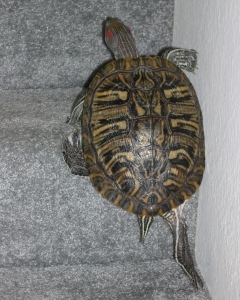
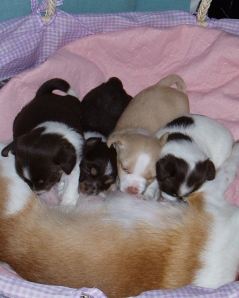
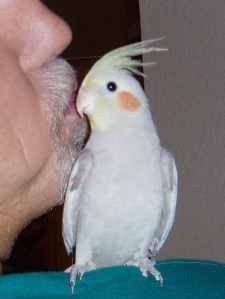
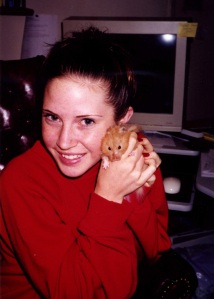
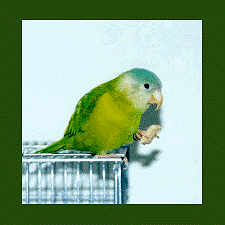
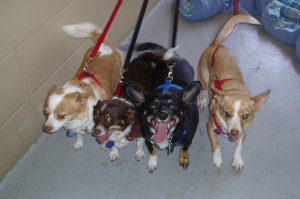
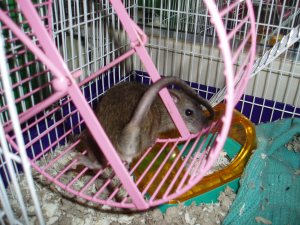
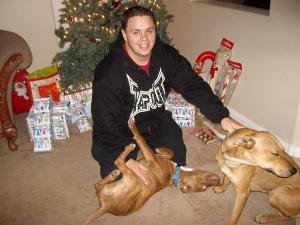
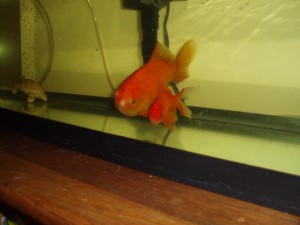
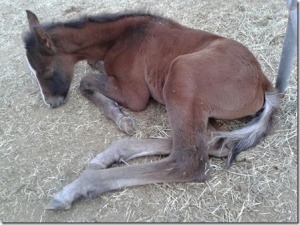
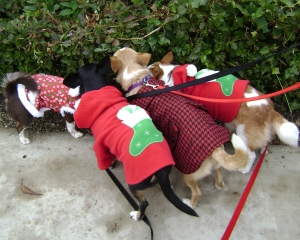
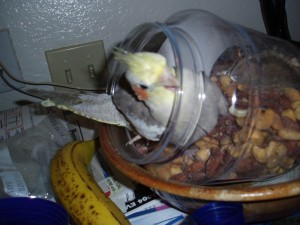

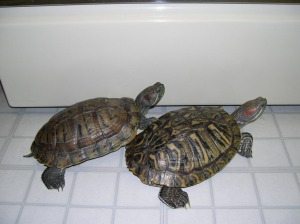
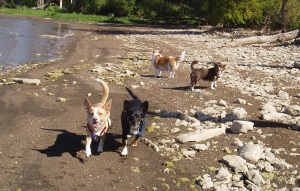
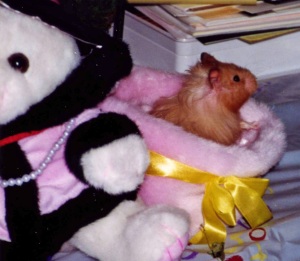

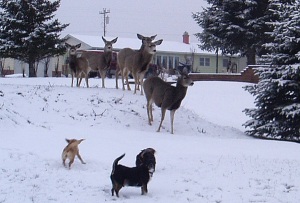
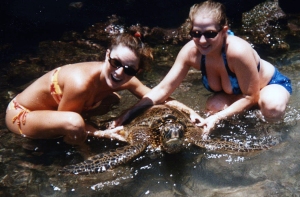
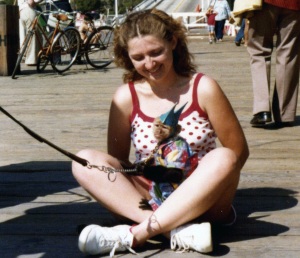
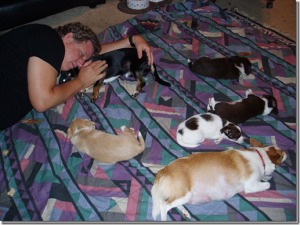
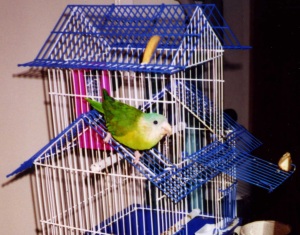
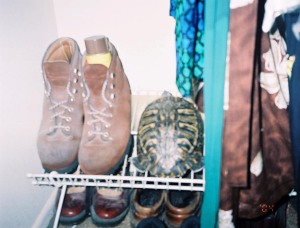

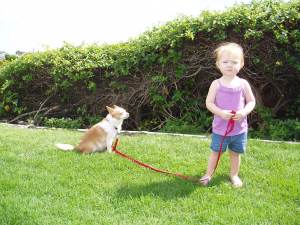
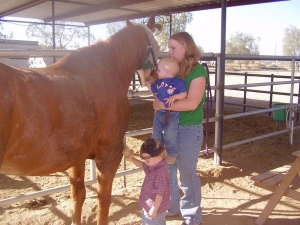
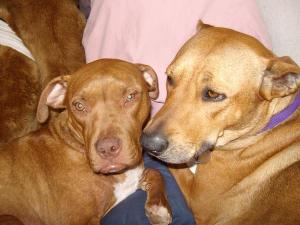


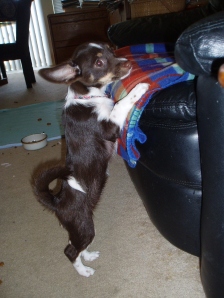


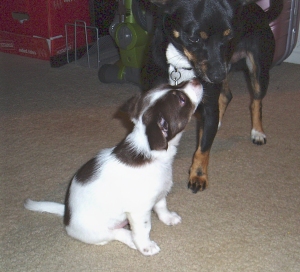





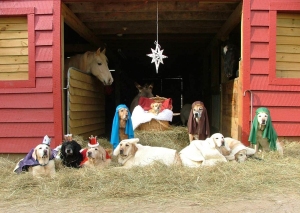








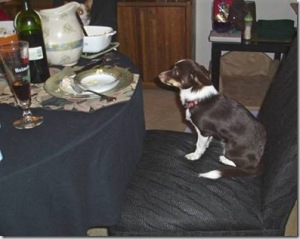
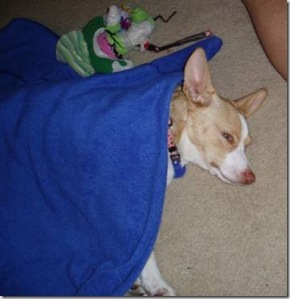
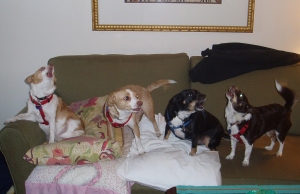


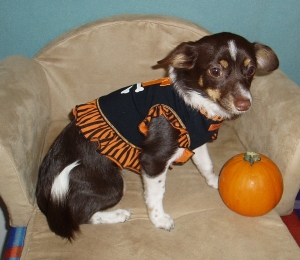
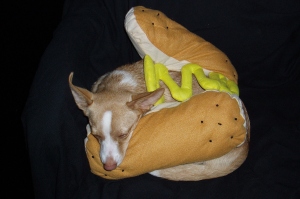


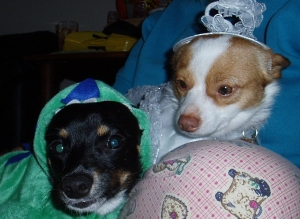









You must be logged in to post a comment.